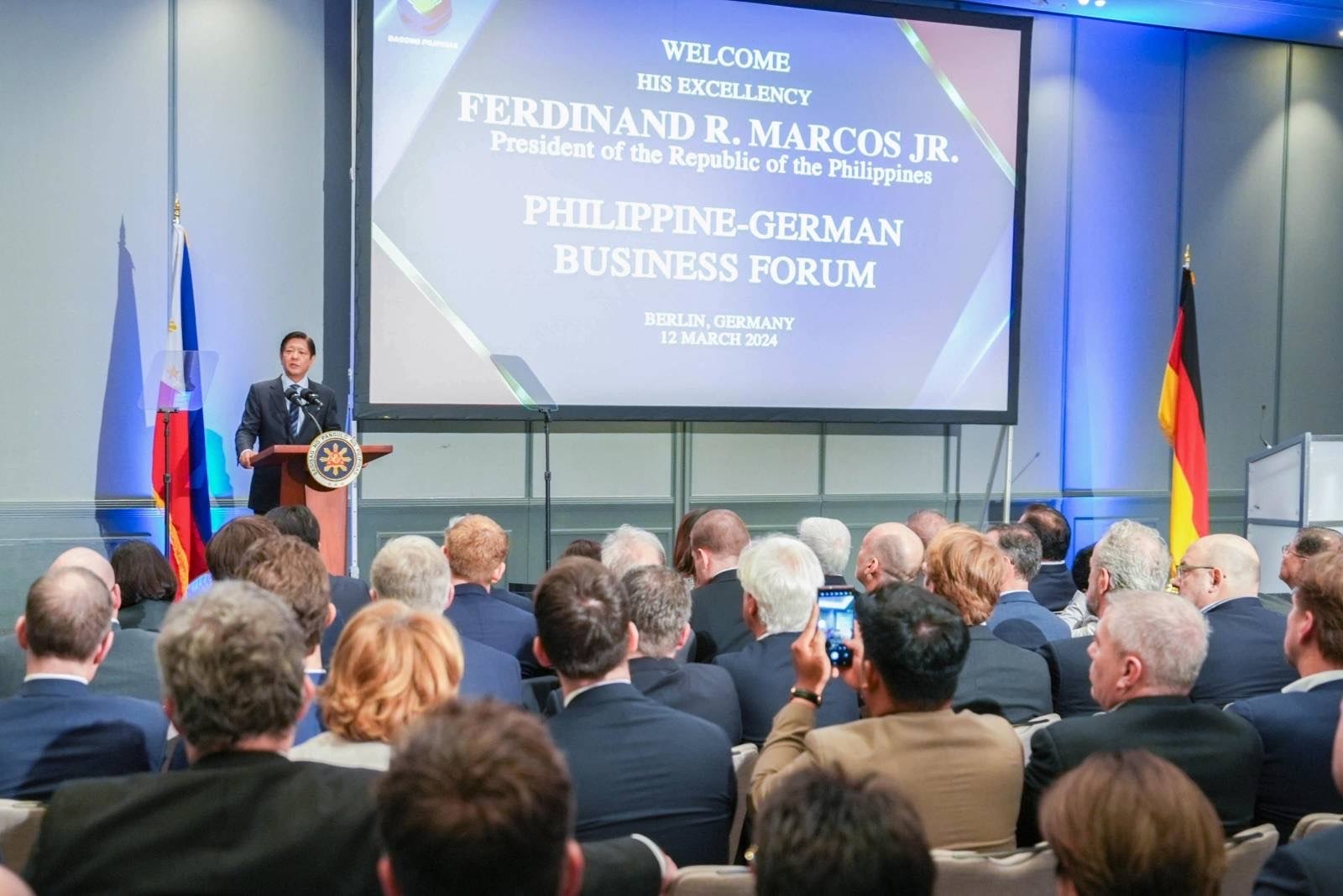Marcos secures Airbus commitment on recycled biofuels project

President Ferdinand Marcos, Jr. during the Philippine-German Business Forum, March 13, 2024. (Official facebook page of Bongbong Marcos
BERLIN – President Ferdinand “Bongbong” R. Marcos Jr, has secured a commitment from aerospace firm Airbus to work with the Department of Transportation in using modern technology for recycled biofuel and extracting carbon energy from landfills for eventual use in the aviation industry.
This was after he met with Airbus’ president and head of region for the Asia-Pacific Anand Stanley at the Berlin Marriott Hotel on Tuesday afternoon.
According to a statement released by the Presidential Communications Office, Stanley informed the President that Airbus is working with the DOTr working group on how to get sources of fuels with high-density populations.
“Used cooking oil is an opportunity where if it can be collected in larger quantities, because there’s a lot of competition, it can be recycled as treated biofuels,” the Airbus top executive said.
Airbus is also studying the possibility of extracting carbon energy from waste landfills.
Article continues after this advertisement“The second area we’re trying to study with the DOTr is landfills, waste landfills. Other technologies that we can use is carbon energy from the landfills,” Stanley said.
Article continues after this advertisementAirbus is part of the DOTr’s working group in charge of crafting a roadmap for sustainable aviation fuel use in the country.
Stanley said Airbus undertook a similar venture in Australia involving carbon extraction from vast landfills.
The process involves extracting or collecting organic matter on any fatty oil matter from landfills and check it for carbon content. Stanley explained that it will then be bracketed to get some molecules out of it just like with cooking oil.
“Agricultural wastes, sea algae, cooking oil, edible fats, or other kinds of agricultural seeds. All of these can be used to create sustainable aviation fuel and can be sold at higher… We are working with the DOTr working group to see if there is a roadmap that we can create,” the Airbus executive said.
Stanley said the venture became financially viable because of the high cost of carbon credit for aviation.
Carbon credits or carbon offsets are permits that allow the owner to emit a certain amount of carbon dioxide or other greenhouse gases.
He added that if carbon extracted from landfills will be used by Philippine Airlines or Cebu Pacific, both air carriers can sell the carbon credit to Germany’s airline, Lufthansa, if they do not want to move it.
“We are also always there to support another area we could – the traffic problem in the Philippines, in the airports. We can help in the studies on automated traffic management and, in some cases, unmanned traffic management to free up the air space,” Stanley said.